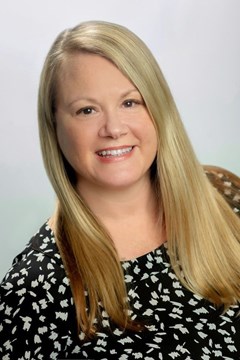Dr. Casey Kayser is one of the service learning committee at the University of Arkansas. She has taught Health Coaches I, II, and III as service learning courses for the […]
 Dr. Casey Kayser is one of the service learning committee at the University of Arkansas. She has taught Health Coaches I, II, and III as service learning courses for the past three three years. With Dr. Fran Hagstrom, she was recognized as the recipient of the first Service Learning Teaching Award.
Dr. Casey Kayser is one of the service learning committee at the University of Arkansas. She has taught Health Coaches I, II, and III as service learning courses for the past three three years. With Dr. Fran Hagstrom, she was recognized as the recipient of the first Service Learning Teaching Award.
Morgan Atwood interviewed Dr. Kayser after she received the award.
What is the most rewarding part for you as a faculty member of teaching a service learning course?
I really enjoy the close relationships I am able to develop with my students and that I see them develop with each other, ones that often go deeper than in the traditional classroom setting, due in part to the real-world situations we encounter together. It is also very rewarding to see students make connections between our classroom topics and the real-world experiences they are having, which often leads them to a deeper level of learning.
What are some of the changes you see in your students from the beginning to the end of the Health Coaches courses specifically?
Students are required to move outside of their comfort zones, from first leaving campus to attend class at Washington Regional; to sitting in classes taught by Washington Regional healthcare professionals; to then going out into the community and visiting with patients in their homes. We see them gain confidence as they move through these experiences: confidence in their ability to navigate new experiences and interact with people who may be very different than them. We also see them begin to understand the interworkings of the healthcare system, individual health behaviors, and the psycho-social, political, cultural, and other factors that play a role in shaping the system and individual and public health.
What do you think the biggest take away for students is from Health Coaches?
Students get first-hand insight into the healthcare system and what it means to be a healthcare professional through working with our Washington Regional healthcare team, and they learn what it’s like to build a relationship with a patient and follow their care. For many students, these experiences help affirm their career goals, or in some cases, lead them to see there might be a better fit for them, at a much earlier stage and ideal time than in professional health professions training.
What have you as a faculty member learned from teaching Health Coaches?
The transformative nature of service-learning courses for students, community members, and faculty alike has really been affirmed for me, and I’ve learned the value of working in interdisciplinary teams in many professional settings.
What is some advice you can give another faculty member who is considering making their course service learning?
Educate yourself about best practice, and be thorough in course planning and in preparing students and community partners. Be sure the component is thoroughly integrated and not simply add-on. At the same time, stay flexible–recognize we can often control things in the classroom that we can’t control in the real world.
How has Health Coaches helped the overall Fayetteville/NW Arkansas community?
The program has affected many patients’ and their families’ lives as students provide companionship and help affirm the sense that somebody cares–that they are not just another faceless, nameless patient moving in and out of the system. Patients are motivated to improve their health and increase their health literacy. When healthcare resources are used more efficiently, quality of care is increased, costs are reduced, and everybody wins.
How has Health Coaches developed over the years?
We began our pilot in Spring 2014, but the model for our program was begun by Dr. Barry Bittman with Meadville Medical Center in Pennsylvania in partnership with Allegheny College. Dr. Bittman visited with UofA and WRMC representatives here in Fayetteville and helped us get our program off the ground. His input has been very useful, but over time we have adapted the program to fit our particular needs and assets. We’ve built a strong program, but we are always ready to adapt to better meet the needs of everyone involved.
To know more about Dr. Kayser, find her professional profile on Linkedin.